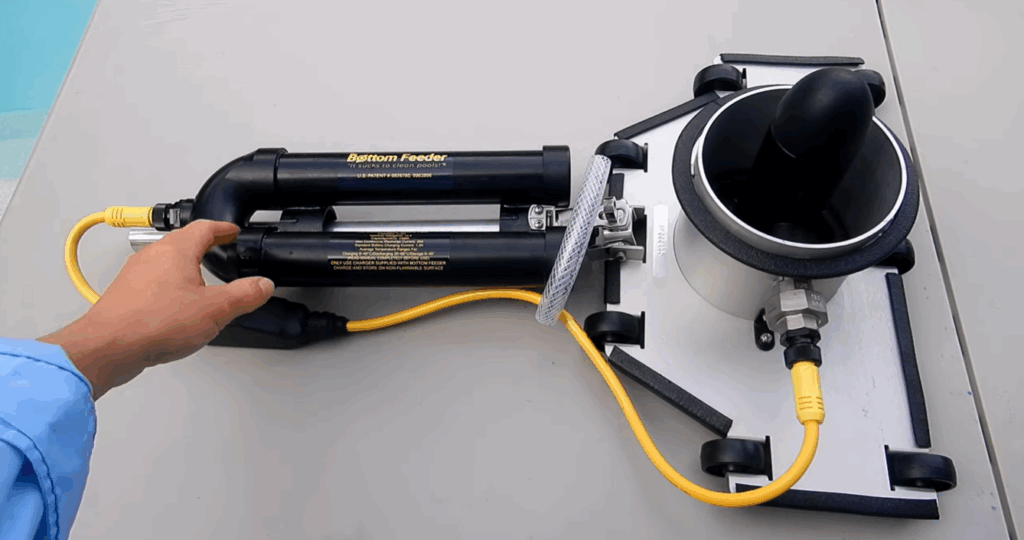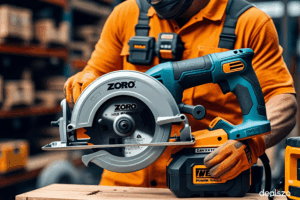A clean pool doesn’t just happen on its own. It takes effort, consistency, and the right tools. And while standard vacuums can handle light cleanup, they often fall short when it comes to deep or repeated cleaning. That’s why more pool owners and service pros are turning to specialized tools designed to do the heavy lifting.
This blog breaks down how a professional pool cleaner works, why it’s different from regular options, and how it makes a real difference in keeping your pool spotless and low maintenance.
What Is a Professional Pool Cleaner?
A professional pool cleaner is not the average vacuum you pick up at a local store. It’s a high-performance cleaning machine built to handle large pools, heavy debris, and frequent use. These machines are commonly used by pool maintenance companies or by homeowners with large outdoor pools.
They come in various types, including battery-powered models, plug-in electric versions, and even fully robotic cleaners. Each one is made to reach difficult areas, pick up more debris in less time, and work consistently without frequent interruption.
These machines often include tough wheels or treads, a wide cleaning path, and strong filtration systems that remove fine particles and large debris alike. What sets them apart is their durability and cleaning power, two things that make routine maintenance less of a chore.
Core Components and How They Work Together
A professional pool cleaner works by using a combination of smart design and mechanical efficiency. Let’s break down how the parts function as a unit.
At the heart of the machine is the motor, which powers the suction and, in many models, drives the movement as well. This motor is designed to deliver strong, consistent suction that doesn’t weaken with light debris or clog easily.
The vacuum head is the part that contacts the pool surface. It pulls in leaves, sand, silt, and sometimes even small pebbles. A strong vacuum head makes a big difference when it comes to speed and thoroughness. Some models come with bristles or brushes that scrub while they clean.
Debris gets pulled into a filter or collection bag, where it’s trapped so it doesn’t float back into the water or reach your pool’s built-in filtration system. That means less work for your pool’s main pump and fewer clogs in your skimmer or pipes.
The power source depends on the model. Cordless vacuums use rechargeable batteries, while others plug into a nearby outlet or connect through your pool’s pump system. Cordless models are usually preferred for their portability and convenience.
Many advanced cleaners also include smart timers or pattern movement. Some robotic versions learn the shape of your pool and adjust their path for better coverage.
What Makes It Different from Standard Pool Vacuums?
The real difference shows up in performance and reliability. Standard pool vacuums are usually made for light or occasional use. They might miss fine particles, clog with larger debris, or take a long time to clean one pool.
A professional cleaner, on the other hand, is designed for tougher jobs. It offers stronger suction, which means it picks up more dirt and debris in a single pass. It works well in deep ends, shallow steps, and uneven surfaces. Some can even climb walls.
Battery life and runtime also stand out. Professional-grade cordless cleaners often run for an hour or more on a single charge. This lets you clean a large pool without pausing to recharge or empty a filter. Build quality matters, too. These cleaners are made from durable materials that hold up under regular use, outdoor exposure, and heavy-duty debris like twigs or sand.
And because many models are cordless, there’s less setup time and more flexibility. You don’t have to deal with tangling cords or hose connections. That makes cleaning less frustrating and more productive.
Why This Cleaning Method Matters
Clean water doesn’t just look better, it’s safer and easier to maintain. A quality pool cleaner doesn’t just vacuum. It removes the debris that causes chemical imbalances and cloudy water.
By cleaning the bottom of the pool regularly, you’re also reducing the strain on your pool’s built-in filter system. That means less backwashing, fewer maintenance tasks, and a longer life for your equipment.
You also spend less time testing and adjusting chemicals. With fewer leaves and dirt sitting in your pool, you reduce the chance of algae growth and unstable pH levels. That’s especially helpful in warmer months or when the pool gets frequent use.
For pool service pros, these cleaners help speed up jobs, increase the number of clients you can serve in a day, and reduce wear on your own tools. Even if you’re not in the pool service business, a powerful cleaner means quicker results, better water quality, and less time spent doing manual vacuuming before guests arrive or before opening your pool for the season.
Conclusion
A professional pool cleaner does more than just tidy up. It helps you manage your pool more efficiently, saves hours of labor, and protects your investment over time. As more models come out with smarter controls, longer runtimes, and better filtration, these cleaners will likely become a standard tool for anyone who takes pool care seriously.
Choosing the right one now sets you up for easier maintenance and cleaner water down the line, and that’s something worth thinking about as pool tech continues to improve.






